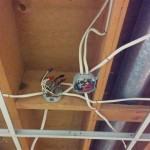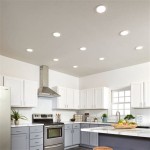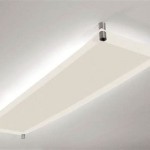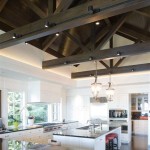Restaurant Kitchen Ceiling Lights: The Illuminate Guide
The kitchen is the heart of any restaurant, and proper lighting is essential for a safe and efficient work environment. Not only does it provide visibility for staff, it also affects the preparation, cooking, and overall ambiance of the space. When it comes to restaurant kitchen ceiling lights, several essential aspects need to be considered.
Light Intensity and Uniformity
The intensity of the light in the kitchen should be sufficient to allow staff to perform their tasks effectively without straining their eyes. Uniformity ensures that all areas are equally well-lit, reducing shadows and blind spots. High-intensity lights with wide beam angles are often used to achieve this.
Color Temperature
The color temperature of the light refers to the perceived warmth or coolness of the light. While natural daylight has a color temperature of around 5000K (Kelvin), restaurant kitchens typically use lights with a color temperature between 3000K and 4500K. This range provides a balance of warmth, visibility, and task-oriented lighting.
CRI (Color Rendering Index)
CRI measures how accurately a light source reveals the colors of objects. In a restaurant kitchen, high CRI is crucial for staff to correctly identify food items, ensuring proper preparation and presentation. Lights with a CRI of 90 or higher are recommended for restaurant kitchens.
Type of Fixture
The type of fixture used for restaurant kitchen ceiling lights depends on the specific requirements of the space. Recessed lights are popular due to their low profile and ability to blend seamlessly with the ceiling. Pendant lights offer more flexibility and can be used to create focal points or task lighting. Track lighting provides adjustable lighting, allowing staff to direct the light where it is needed.
Durability and Maintenance
Restaurant kitchen environments are often subjected to heat, grease, and moisture. Choosing durable fixtures with high-quality materials and coatings is essential to ensure longevity. Regular maintenance, such as cleaning and replacing bulbs, is also important to maintain optimal lighting performance.
Energy Efficiency
Energy-efficient lighting can significantly reduce operating costs for restaurants. LED lighting is becoming increasingly popular in commercial kitchens due to its high efficiency, long lifespan, and ability to withstand demanding conditions. Motion sensors and timers can also be incorporated to automatically adjust lighting levels and save energy.
Conclusion
By considering these essential aspects of restaurant kitchen ceiling lights, you can create a well-lit work environment that promotes safety, efficiency, and quality. Proper lighting not only supports the staff but also contributes to the overall ambiance and success of your culinary operations.

Commercial Kitchen Lighting Commerical Light Fixtures

Industrial Kitchen Lighting Built For Commercial Use Alcon

Restaurant Lighting Ideas Types Styles Fixtures

Walls And Ceilings Cover Ups

Restaurant Lighting A Unique Challenge Stanpro

Kitchen Lamp Ceiling Type Three Lights Multi Directional Rotation Black Iron Lampshade For Farmhouse Restaurant Porch Corridor Etc Excluding E14 Light Bulb Temu

Restaurant Lighting A Unique Challenge Stanpro

Restaurant Kitchen Design Ideas Worthy Of Your Housing News

4 Heads Loft Rh Restaurant Ceiling Lamp Retro Punk Kitchen Light Coffee Edison Bulbs Strak Led

Brass Gold Pendant Light For Kitchen Island 1 Cylinder Metal Cage Hanging Lighting Fixtures Modern Farmhouse Ceiling Lamp Dining Living Room Bedroom Foyer Restaurant Com
Related Posts








